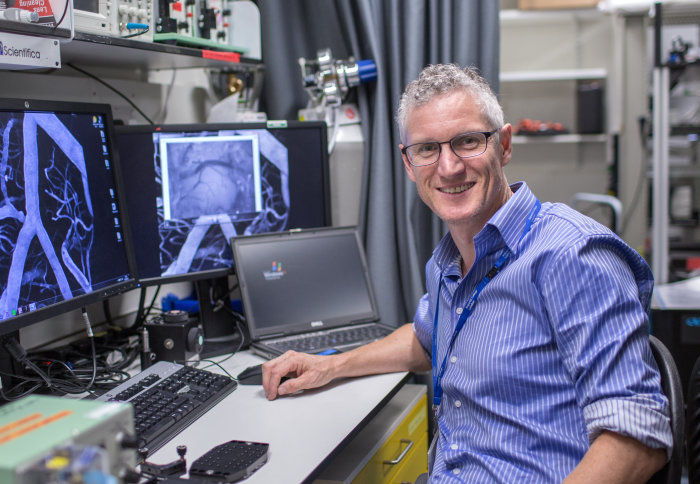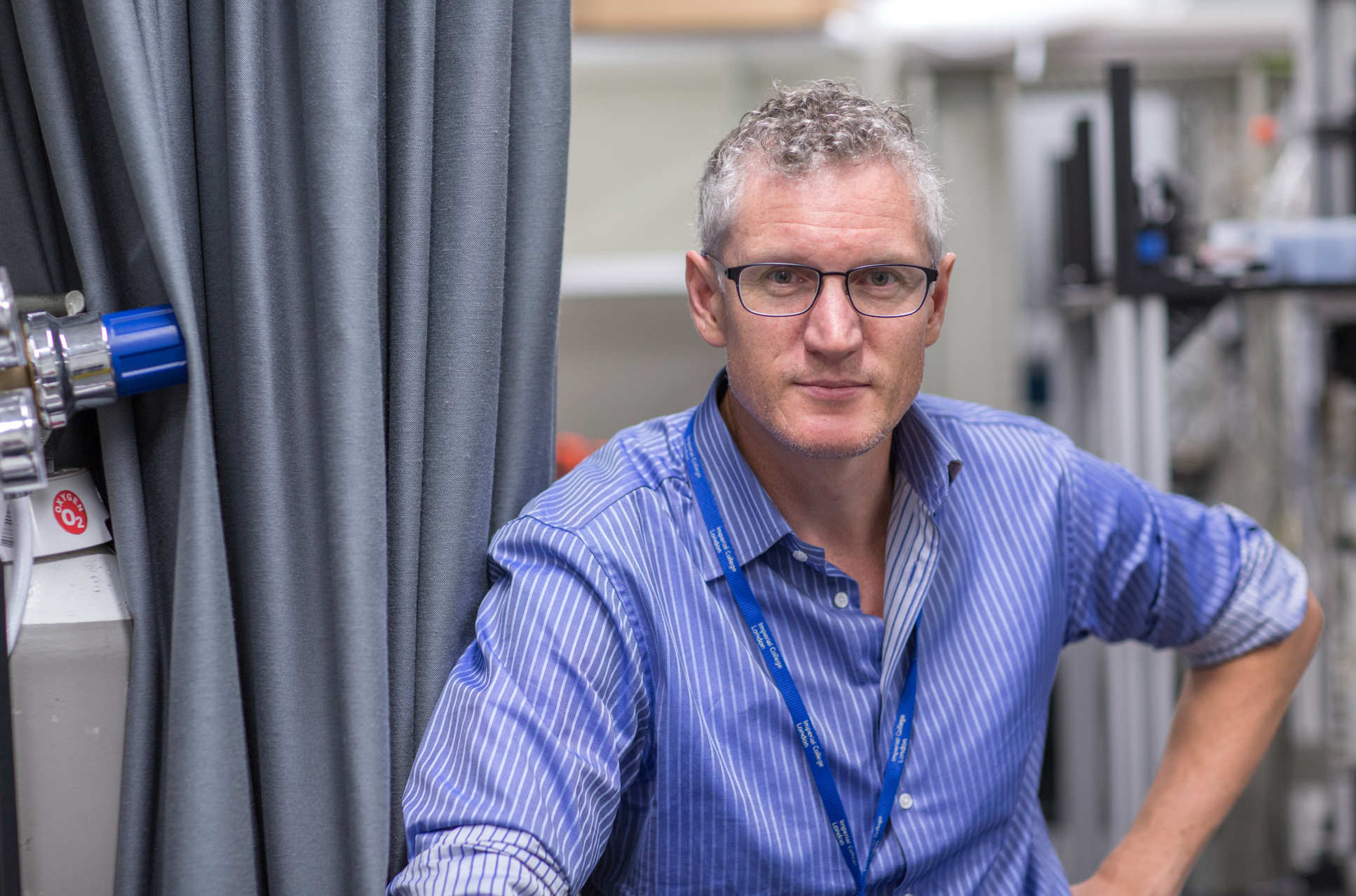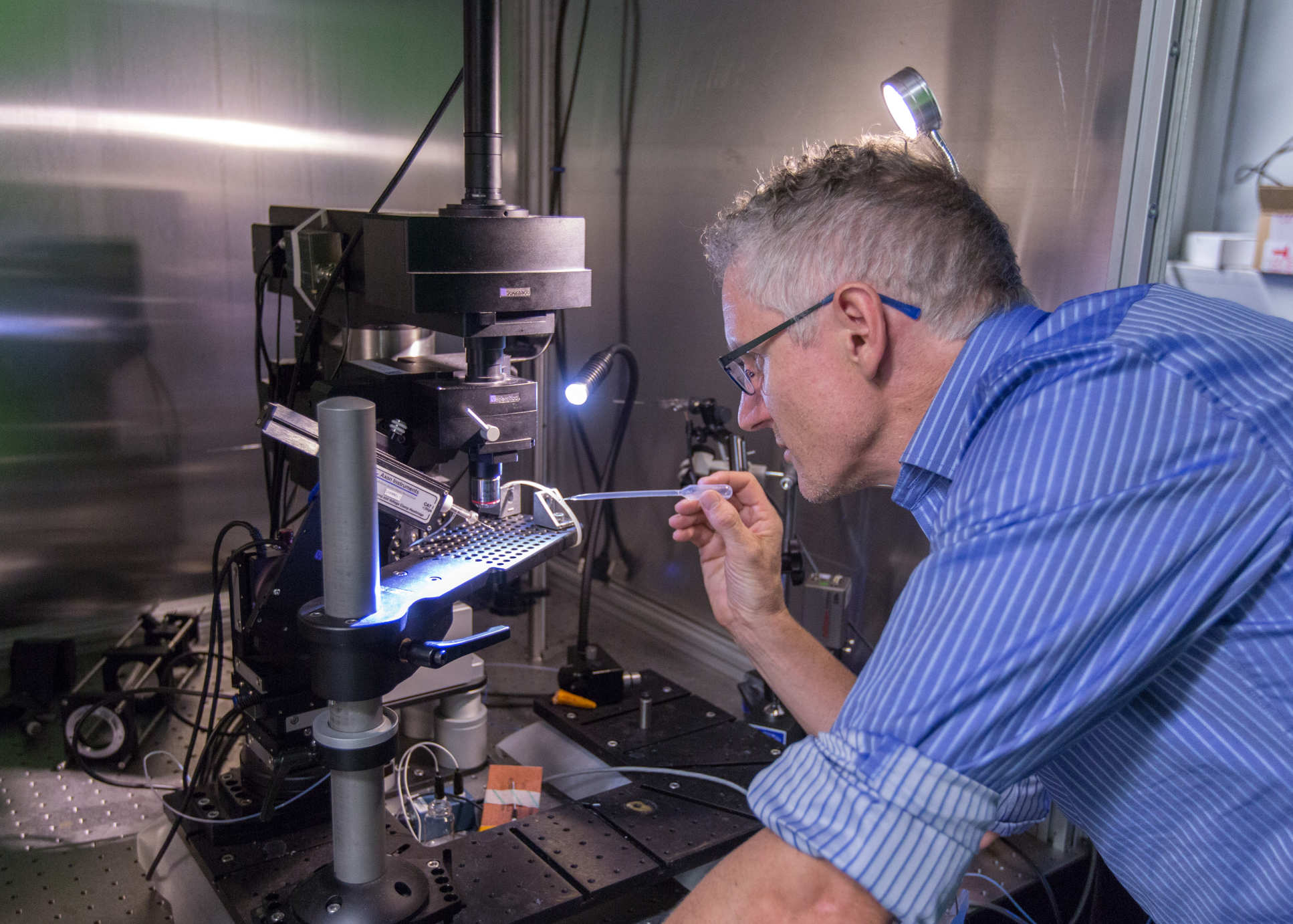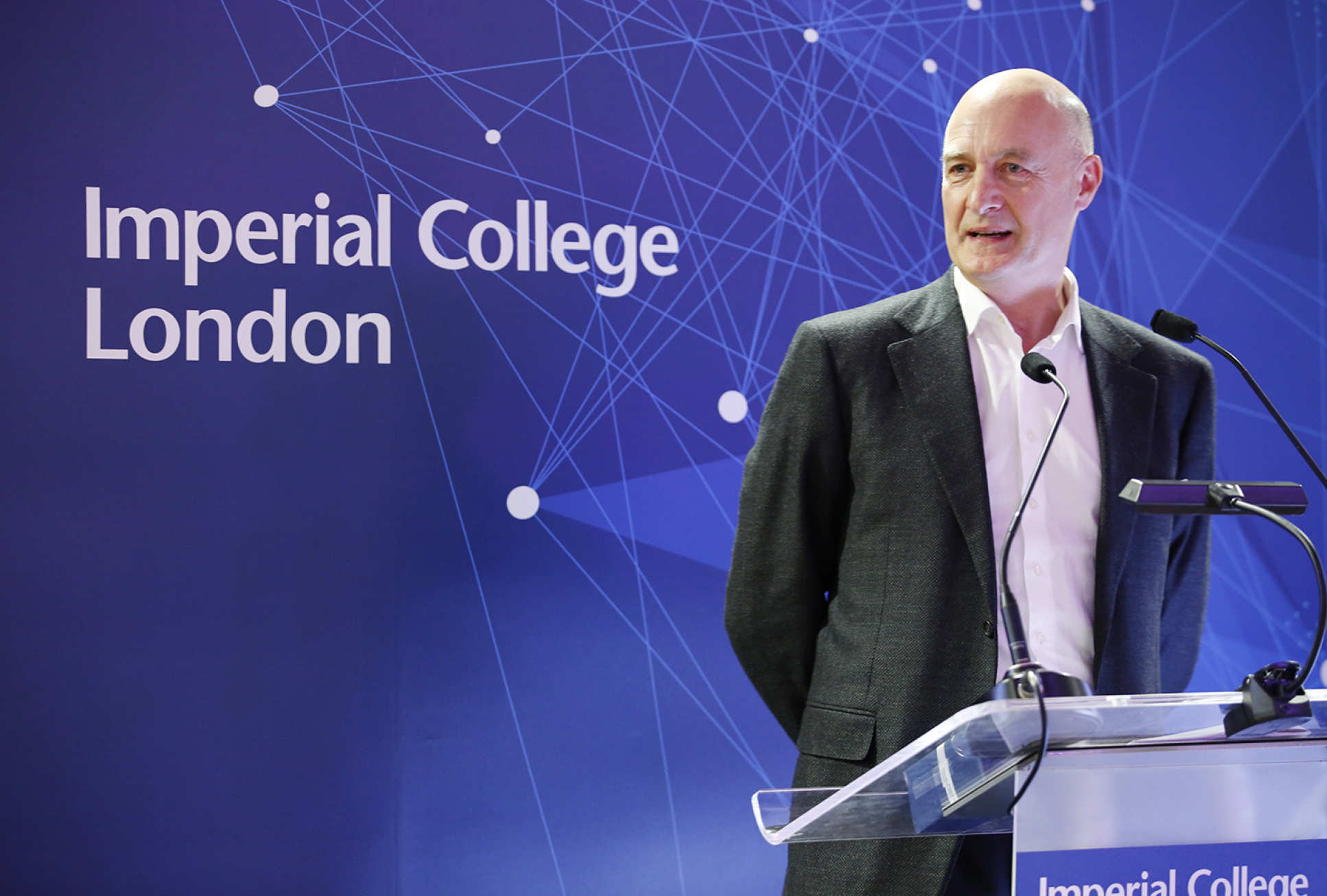Neuroscientist partners with Australian institution to treat brain disorders

An Imperial researcher has won funding to work with Australian academics to develop new technologies to treat brain disorders.
The University of Melbourne is Australia's top-ranked university and an ideal partner for our research Professor Simon Schultz Professor of Neurotechnology
Professor Simon Schultz, from the Department of Bioengineering, has won a grant through the UK Government’s Rutherford Fund to bring three researchers from the University of Melbourne to his laboratory.
Imperial is recognised as one of the leading centres of neurotechnology in Europe.
Professor Schultz, Director of Imperial’s Centre of Excellence in Neurotechnology, explained that the University of Melbourne made an ideal partner to collaborate with because of their advances in bionics.
 Professor Schultz said: “Brain-related illnesses affect more than two billion people worldwide, and the numbers are growing.
Professor Schultz said: “Brain-related illnesses affect more than two billion people worldwide, and the numbers are growing.
"Our research, which brings together cross-disciplinary teams, aims to develop and harness new technologies to better understand and treat brain disorders.
“The University of Melbourne is the top-ranked university in Australia, and have a strategic focus on neural engineering.
"They have made exciting advances in bionics and this makes them an ideal partner for our research.
“This funding will bring three postdoctoral fellows from Melbourne to Imperial for a year, to carry out a research project in a laboratory at Imperial, but also to act as ‘ambassadors’ to develop and strengthen research collaborations at the interface of neuroscience and engineering between the two universities.”
 The project will involve the University of Melbourne's Department of Biomedical Engineering, led by Professor David Grayden, and the Centre for Neural Engineering.
The project will involve the University of Melbourne's Department of Biomedical Engineering, led by Professor David Grayden, and the Centre for Neural Engineering.
The new Universities UK International Rutherford Fund Strategic Partner Grant scheme will see a total of 88 fellows from 13 partner countries join research teams at 17 UK institutions.
The fellowships are funded by the UK Department for Business, Energy and Industrial Strategy (BEIS) through the £118m Rutherford Fund, which aims to attract global talent and strengthen the UK's research base.
Australia collaboration

Australia is one of Imperial’s top research collaborators. In the past five years alone, Imperial researchers have co-authored 4,000 papers with their Australian peers.
During a visit to Australia earlier this month, Professor David Gann, Vice President (Innovation) spoke of the importance of international collaboration in an interview with Australia's national newspaper The Australian.
He said universities need to collaborate like never before to build the multidisciplinary capability to tackle research grand challenges such as improving human health and solving the problems of climate change, energy and cyber security.
Professor Gann also spoke about the impact of artificial intelligence on research.
Professor Gann said that machine learning and artificial intelligence opened up exciting new vistas for research.
He said the ability to collect and manipulate data was the new scientific infrastructure.
“We’re beginning to see the extraction of insights we wouldn’t have got before — about how diseases spread, about how cellular mechanisms operate in people’s bodies, and once you extract insights you can build models, and you can begin to be a bit more predictive.”
_
Image credit (Professor Schultz): Thomas Angus / Imperial College London
Article text (excluding photos or graphics) © Imperial College London.
Photos and graphics subject to third party copyright used with permission or © Imperial College London.
Reporter
Stephen Johns
Communications Division